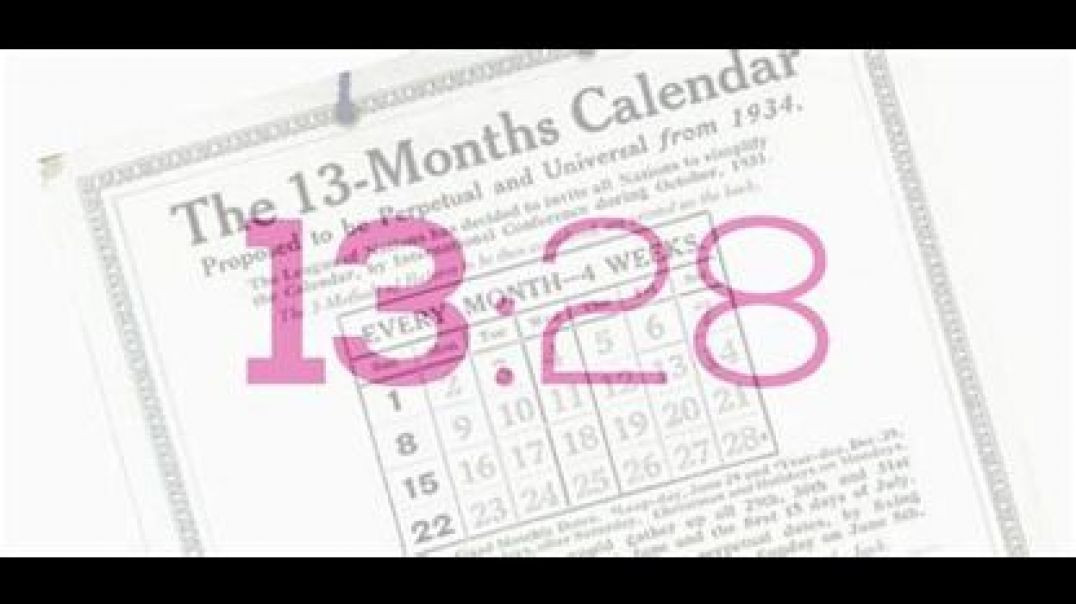Live streaming on Altcast.TV is now available!
DID YOU KNOW APRIL 1ST 📆 IS ACTUALLY THE TRUE NEW YEAR❓
FLAT OUT TRUTH - Did you know April 1st is actually the true New Year? ⏱
Source: https://x.com/TheFlatEartherr/....status/1906840674869
Thumbnail: [thanks to https://tartariabritannica.com..../blog/april-1st-the- 🖲]
For most, April 1st is a day of pranks, harmless tricks, and laughter at the expense of the gullible. But beneath the surface of this seemingly innocent tradition lies a forgotten history—a tale of deception, reshuffled time, and a deliberate effort to sever humanity’s connection to the natural cycles that once governed life.
What if I told you that April 1st was once the true New Year? And what if those we mock as ‘April Fools’ were actually the last keepers of a sacred tradition?
This is the story of how the New Year was stolen—and how those who held fast to the old ways were turned into the world’s greatest joke.
Long before the rigid imposition of the modern calendar, the New Year was not an arbitrary date dictated by papal decree—it was a celebration of cosmic and earthly renewal. Ancient civilizations across the world, from the Egyptians to the Persians, aligned their calendars with the Spring Equinox.
The logic was irrefutable: spring marked the return of life, the resurrection of the Sun from its lowest point in the sky, the blooming of flowers, and the beginning of new agricultural cycles. Everything—planting, fertility rites, and the cosmic dance of the heavens—pointed to this as the true start of the year.
The Romans, too, originally celebrated the New Year in March, with festivals honouring Mars, the god of war, as armies prepared for the campaign season. Even their own calendar, predating Julius Caesar’s reforms, recognised March as the first month—hence why September, October, November, and December retain their numerical roots (seven, eight, nine, and ten) despite now sitting in the year’s latter half.
In 1582, Pope Gregory XIII introduced the Gregorian Calendar, ostensibly to correct drift in the Julian system. But this was more than a mere refinement—it was a reshuffling of time itself.
The New Year was officially moved to January 1st, a date with no natural significance, severing the people’s spiritual and practical ties to the equinox. Though the Catholic world was ordered to comply, not everyone was so quick to abandon their ancient traditions.
For decades—perhaps even centuries—many continued to celebrate the old New Year around the Spring Equinox, culminating in early April. These were the holdouts, the ones who clung to what had always been.
But history is written by the victors. And the victors do not simply change dates; they change perceptions.
A smear campaign began, branding those who celebrated the New Year in April as “fools.” They were mocked, ridiculed, and made the butt of jokes—leading to the tradition of April Fool’s Day. What had once been a sacred time of renewal and natural alignment was twisted into an occasion for deception and trickery. The real joke, however, was played on the world at large, as most would forget why this transition happened at all.
We live in an age where official narratives shape our understanding of history. Yet, beneath these layers of imposed traditions, the echoes of the old ways still remain—hidden, but not entirely lost.
April 1st, far from being a day of foolishness, is actually a relic of a time when people aligned themselves with the natural rhythms of creation. It is a day of defiance, a quiet rebellion of the past whispering through the present.
So the next time someone calls you an “April Fool,” smile—because, whether they know it or not, they are acknowledging your connection to a lost truth.
Perhaps it is time to reclaim what was taken.
Perhaps the real fools are those who blindly follow imposed traditions, never questioning why things are the way they are.
Perhaps, after all this time, the joke is still on them.

![SPICY SEARCH WARRANT SERVED 🔞 [HOUSTON WADE BUSTED ATTEMPTING TO MEET 11 YEAR OLD WITH SEX TOYS]](https://s3.us-central-1.wasabisys.com/altcast1/upload/photos/2026/01/3KEAu26TZM2oBscL4kcX_10_7db9520121b80bf1935e153bc56884be_image.png)


















![EYES WIDE SHUT ☛ VICTOR'S TRUE IDENTITY [JEFFREY EPSTEIN❓] 🎙 OCCULT COMMENTARY](https://s3.us-central-1.wasabisys.com/altcast1/upload/photos/2026/02/Re1aqgHQu152V2Zss7xG_02_e9b8c730a4e8312bba3bc13530bf603b_image.png)
